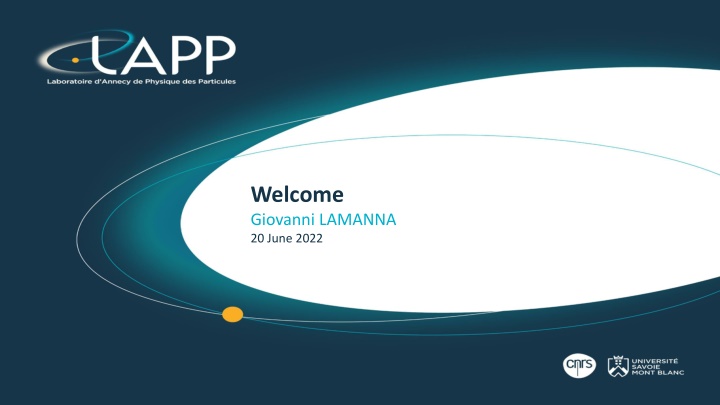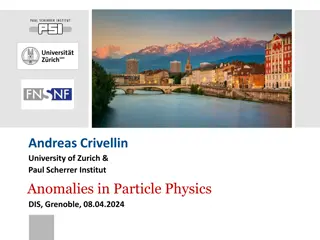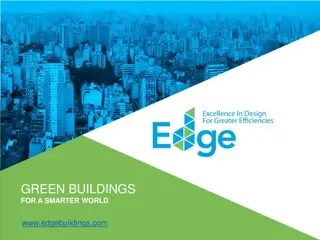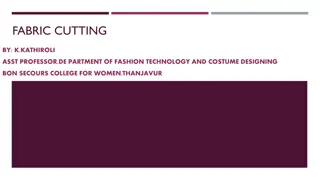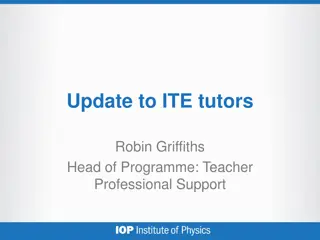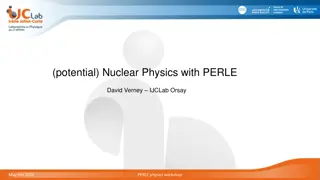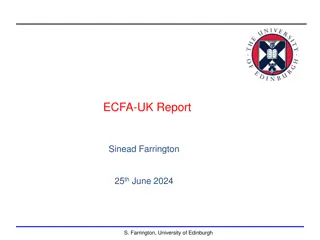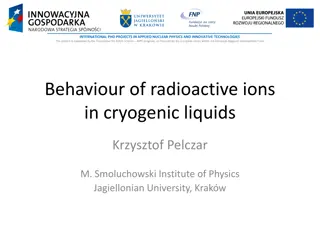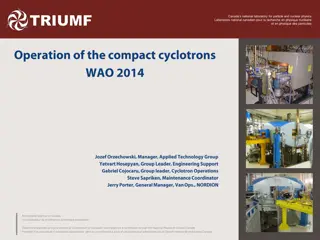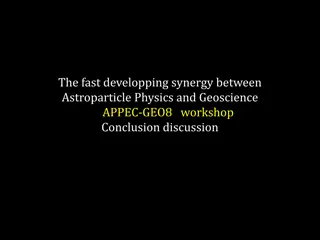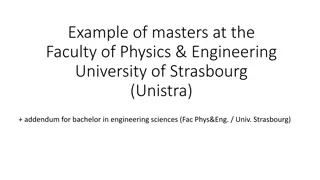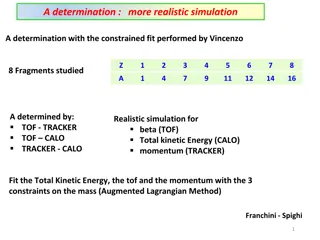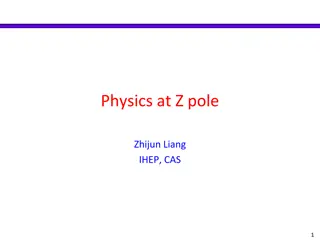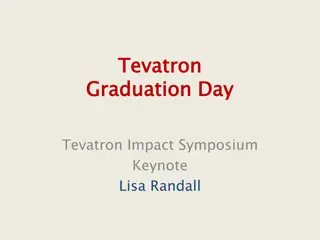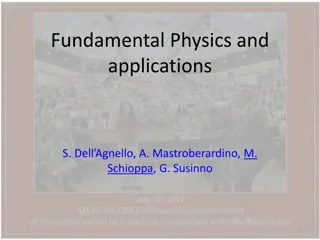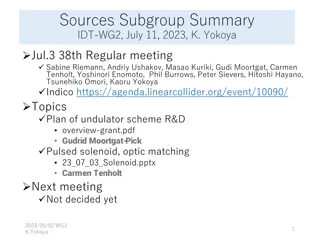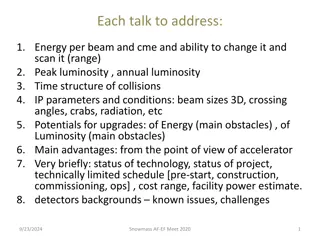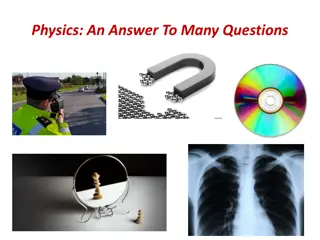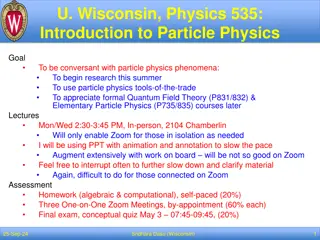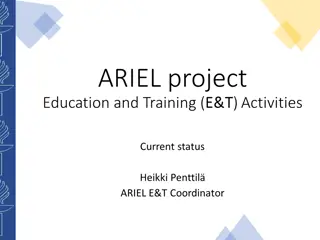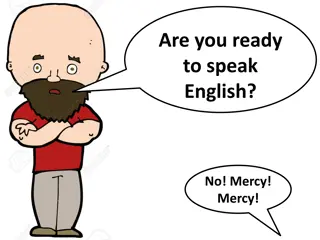Cutting-Edge Research at LAPP: Unveiling the Mysteries of Particle and Astroparticle Physics
LAPP, a laboratory of CNRS in Annecy, plays a vital role in particle and astroparticle physics research. With a rich history dating back to 1976, it serves as a gateway to CERN for French scientists. The laboratory houses over 150 experts and fosters advancements in various technologies. ESCAPE, funded by the EU's H2020 program, is a key initiative that LAPP is involved in, along with other science clusters focusing on different scientific domains.
Download Presentation

Please find below an Image/Link to download the presentation.
The content on the website is provided AS IS for your information and personal use only. It may not be sold, licensed, or shared on other websites without obtaining consent from the author.If you encounter any issues during the download, it is possible that the publisher has removed the file from their server.
You are allowed to download the files provided on this website for personal or commercial use, subject to the condition that they are used lawfully. All files are the property of their respective owners.
The content on the website is provided AS IS for your information and personal use only. It may not be sold, licensed, or shared on other websites without obtaining consent from the author.
E N D
Presentation Transcript
Welcome Giovanni LAMANNA 20 June 2022
Fundamental research in Annecy Created in 1976, LAPP is a laboratory of the CNRS French National Institute for Nuclear and Particle Physics (IN2P3) and USMB. Particle and Astroparticle physics. Combination of the experimental investigations of the two infinities, from the largest-scale structures in the observable Universe to the most fundamental particles LAPP, 10/09/2024 G. Lamanna 2
Fundamental research in Annecy LAPP was born in 1976 as a gateway-laboratory to CERN for French CNRS scientists. Today more than 150 researchers, engineers, technicians, administrative personnel, students.. Frontier technologies in different fields: mechanics, electronics, mechatronics, computer science, scientific and control software and e-infrastructures. LAPP, 10/09/2024 G. Lamanna 3
ESCAPE - The European Science Cluster of Astronomy & Particle Physics ESFRI Research Infrastructures has received funding from the European Union s Horizon 2020 research and innovation programme under the Grant Agreement n 824064.
The ESCAPE H2020 CONSORTIUM 31 partners including 2 SMEs 10 ESFRI projects & landmarks: CTA, EST, FAIR, HL-LHC, KM3NeT, SKA, LSST, VIRGO, ESO, JIVE 2 pan-European International Organizations: CERN, ESO with their world- class established infrastructures, experiments and observatories 2 European Research Infrastructures: EGO and JIV-ERIC 1 involved initiative/infrastructure: EURO-VO 4 supporting European consortia: APPEC, ASTRONET, ECFA and NuPECC Budget: 15.98 M Started: 1/2/2019 Duration:48 months (end date 31/1/2023) Coordinator: CNRS-LAPP Funded by the European Union s Horizon 2020 - Grant N 824064 5/5/2022 Giovanni Lamanna 5
(ESFRI) and other RI PARTNERS / Nuclear Physics / Astroparticle Physics Funded by the European Union s Horizon 2020 - Grant N 824064 5/5/2022 Giovanni Lamanna 6
The five Science Clusters ESCAPE is one of the five Science-Cluster projects that resulted from the H2020 topic call INFRAEOSC-04-2018: Connecting ESFRI infrastructures through Cluster projects (and connecting the ESFRIs to European Open Science Cloud - EOSC) Other Science Clusters: ENVRI-FAIR (Environment and Earth Sciences), EOSC-LIFE (Biomedical Science), PANOSC (Neutron and light sources facilities) and SSHOC (Social Science and Humanities). Expected impact: Improve access to data and tools leading to new insights and innovation Facilitate access of researchers to data and resources for data driven science. Create a cross-border open innovation environment. Rise the efficiency and productivity of researchers through open data services and infrastructures for discovering, accessing, and reusing data. Foster the establishment of global standards. Five Science Clusters Develop synergies and complementarity between involved research infrastructures. Adopt common approaches to the data management for economies of scale. More than 80% of ESFRI RIs, plus other world-class RIs and new emerging ones. Working together making data and scientific research FAIR Funded by the European Union s Horizon 2020 - Grant N 824064 5/5/2022 Giovanni Lamanna 7
The ESCAPE Work Programme for a domain-based EOSC CELL Funded by the European Union s Horizon 2020 - Grant N 824064 5/5/2022 Giovanni Lamanna 8
ESCAPE OSSR School Objectives: Each ESCAPE ESFRI RI needs individually to expose and make accessible data & software All together they wish to adopt common solutions and offer a virtual space for interoperability and multi-messenger & multi-probe data research to next generation scientists (Astro. & Particles) All are willing to co-develop new methods/algorithms, share (novel) software and expose the open science tools under the EOSC catalogue ESCAPE deliverables: Establish a community-foundation Expose/share software to users via the EOSC catalogue Train and guide the scientists/users Provide a scheme to acknowledge and reward scientists for their commitment Funded by the European Union s Horizon 2020 - Grant N 824064 20/6/2022 Giovanni Lamanna 9
A warm welcome! Have a fruitful training and enjoy Annecy ! We all hope that the school will satisfy your expectations and you will have useful exchanges and discussions Funded by the European Union s Horizon 2020 - Grant N 824064 20/6/2022 Giovanni Lamanna 10
THANK YOU! Funded by the European Union s Horizon 2020 - Grant N 824064 5/5/2022 Giovanni Lamanna 11
